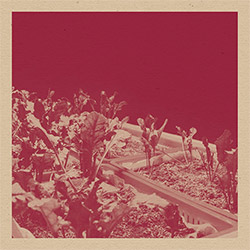
Working with sound and the relationship to food, crops, and the culinary identity of communities, Beta Vulgaris, (the latin name of the common beet) was composed by Bogota, Columbia born David Velez, a PhD graduate in Sound Art from the University of Huddersfield, who used these specific tones to stimulate the growth of beetroot in the garden of the Modern Art Museum in Medellin.
In Stock
Quantity in Basket: None
Log In to use our Wish List
Shipping Weight: 3.00 units
EU & UK Customers:
Discogs.com can handle your VAT payments
So please order through Discogs
Sample The Album:
David Velez-sine tones, foley, research
Click an artist name above to see in-stock items for that artist.
Label: Sublime Retreat
Catalog ID: SR014
Squidco Product Code: 32999
Format: CD
Condition: New
Released: 2022
Country: Poland
Packaging: Cardstock Sleeve, sealed
"Beta Vulgaris was composed by David Vélez to stimulate the growth of beetroot after his interest in its unique taste, colour, and shape and its superb nutritional and medicinal value. It was played in David's own small domestic crop of beets and in the garden of a museum in Colombia, and they grew big, beautiful, healthy and delicious.
This project is an invitation to consider urban and domestic agriculture as means to claim political and alimentary autonomy in alliance with beets and their extraordinary nutritional, medicinal and aesthetic potency.
For his research work on the relationship between sound and food, David Velez was awarded PhD in Sound Art in the UK.
PRELIMINARY CONSIDERATIONS
Philosopher Michael Marder writes about his extended and close encounters with plants, indicating experiencing time deceleration and losing track of its lapse. He suggests that these changes in time perception help him establish proximity with these organisms. In these close encounters with plant life, Marder perceives that he is together with himself in a way in which he becomes himself otherwise. Here, he finds himself meditating in silence while experiencing continuity in the streaming realm of sound. Studies show that farming synchronises the body to circadian rhythms which has beneficial effects on our well-being, helping decrease the risk of depression symptoms.
Biologist Edward O. Wilson suggests that the attraction of humans to plants, and other non-human organisms, is connected with millions of years of symbiotic adaptation and genetic coevolution, where every species perceives the others around as collaborators and co-authors of its current genetic development.
Horticulturist Paula Diane Relf acknowledges the positive effects of farming in well-being operating in specific aspects. She supports that therapeutic farming can operate as an insightful catharsis that stimulates great observation capacity and a greater sense of empathy.
BETA VULGARIS
Jeanne McHale is a researcher in physical chemistry who analyses beets to develop sustainable solar energy systems by working with betanin, the component that gives them their unique colour. She studies it to replace photovoltaic cells in solar panels. The toxicity of these cells is the main reason why solar energy is unsustainable. The research of McHale could help alleviate the energy crisis which is one of the leading causes of the current climate crisis.
Betanin stimulates blood flow to the brain and improves certain cognitive functions, as suggested by chemistry researchers Li-June Ming and DM Jonathan Burdette. Ming studies the composition of betanin to slow down the speed at which Alzheimer's attacks the brain. This disease occurs when the energy reserve accumulated in the brain decreases, and the brain can no longer counteract the detrimental effects of entropy. Considering the ongoing Alzheimer's epidemic, Ming's research could benefit millions and save thousands of lives, as revealed by the most recent public health statistics.
David Vélez composed this piece considering beetroot plants as collaborators, hence the need to establish a point of intersubjective acoustic convergence in which he could engage with their perception of sound. For this, David considered theories about the acoustics of plants in botany and agriculture. In his studio, he grew beets while acoustically stimulating them with great results. After three months, they grew healthy, exuberant and exquisite. Later, in the Modern Art Museum in Medellin, the process was replicated with equal success, leading to a culinary workshop on beets. The theories David researched are as follows:
(a) The project Sonic bloom organic farming made easy! by the researcher in agricultural acoustics, Dan Carlson, was crucial in the composition of this piece. His ideas, which David read about in the essay Advances in Effects of Sound Waves on Plants, authored by Rada Hassanien, suggest that plants show a positive reaction to sinusoidal waves above 3,000 Hz. For Carlson, these sounds can accelerate the growth of plants, increase the volume of the harvest, stimulate the development of leaves and flowers, improve resistance to diseases, and increase the reception of nutrients. Sine tones over 3,000 Hz open the stomata in the epidermis of stems and leaves and encourage better absorption of nitrogen, water, and other essential substances, he suggests.
(b) To stimulate the plants, David also examined the paper Plants respond to leaf vibrations caused by insect herbivore chewing, authored by Heidi Appel and Rex Cocroft, whose research suggests that these sounds can strengthen the immune system of plants. Composer decided to recreate them using cooking sounds recorded from beet preparations pursuing proximity, textures, movement and detail.
(c) Axel Michelsen studies the relation between insects, plants and sound and suggests that some insect species use vegetables as acoustic transducers to amplify their sounds. The sounds made by insects are often imperceptible hence the need to use plants to amplify them."-Sublime Retreat
Artist Biographies
• Show Bio for David Velez David Velez, from Bogotá, Colombia, is a PhD candidate in the University of Huddersfield, UK in the program of Music and Technology. "In my work I enquiry about the relationships that we can establish with our environment through the mediation of sound where listening emerges as an aesthetic action and as a receptive, attentive and affective position. Currently my work focuses on the sounds of kitchens and market places with a special interest is the culinary identity of communities and individuals who face some type of uprooting, displacement or abuse, where the flavours, smells and sounds of their recipes emerge as a device of resistance against phenomena such as gentrification, discrimination and violence. In my work, the artistic practice with sound aims to establish aesthetic and theoretical autonomy from music and visual art. My work is based on the action of listening, recording and decontextualization of sound, as well as on the appropriation of ethnographic methodologies where the creation processes are a collective endeavour. The results of this practice can be heard in field recording compositions, public space installations and multi-sensorial cooking performances." ^ Hide Bio for David Velez
7/9/2025
Have a better biography or biography source? Please Contact Us so that we can update this biography.
Track Listing:
1. Beta Vulgaris - I 3:51
2. Beta Vulgaris - II 6:11
3. Beta Vulgaris - III 8:36
4. Beta Vulgaris - IV 7:59
5. Beta Vulgaris - V 5:20
Electro-Acoustic
Organized Sound and Sample Based Music
Electronic Forms
Sound, Noise, &c.
Solo Artist Recordings
Mexico, Central & South Americas + Islands
New in Experimental & Electronic Music
Search for other titles on the label:
Sublime Retreat.


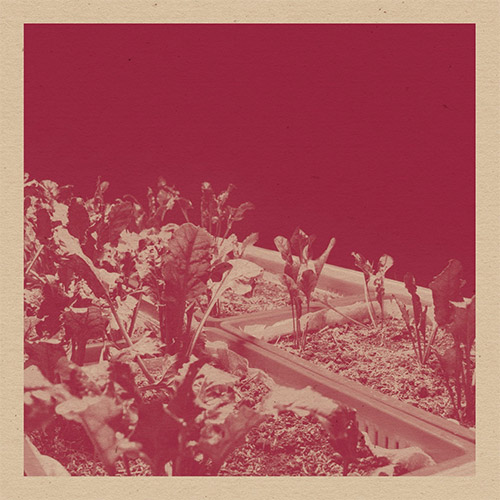




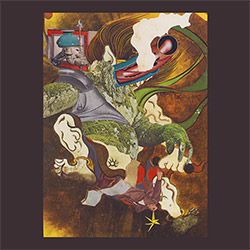









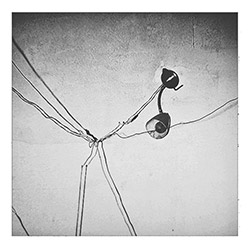








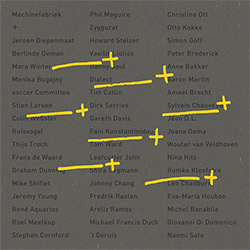






![BlueRing Improvisers: Materia [2 CDs]](https://www.teuthida.com/productImages/misc4/36513.jpg)








![Wheelhouse (Rempis / Adasiewicz / McBride): House And Home [VINYL]](https://www.teuthida.com/productImages/misc4/36462.jpg)
![+DOG+: The Light Of Our Lives [2 CDs]](https://www.teuthida.com/productImages/misc4/36009.jpg)


![Parker, Evan / Jean-Marc Foussat: Insolence [VINYL]](https://www.teuthida.com/productImages/misc4/36398.jpg)










![Deupree, Jerome / Sylvie Courvoisier / Lester St. Louis / Joe Morris: Canyon [2 CDs]](https://www.teuthida.com/productImages/misc4/36404.jpg)



![Eventless Plot | Haarvol: The Subliminal Paths [CASSETTE + DOWNLOAD]](https://www.teuthida.com/productImages/misc4/36232.jpg)










![Eventless Plot | Francesco Covarino: Methexis [CASSETTE + DOWNLOAD]](https://www.teuthida.com/productImages/misc4/36231.jpg)



![Das B (Mazen Kerbaj / Mike Majkowski / Magda Mayas / Tony Buck): Love [VINYL]](https://www.teuthida.com/productImages/misc4/36329.jpg)


![Eternities: Rides Again [CASSETTE]](https://www.teuthida.com/productImages/misc4/36247.jpg)
![Lopez, Francisco: Untitled (2021-2022) [2 CDs]](https://www.teuthida.com/productImages/misc4/36438.jpg)






![Money : Money 2 [2 CDs]](https://www.teuthida.com/productImages/misc4/35894.jpg)




![Klinga, Erik: Elusive Shimmer [VINYL]](https://www.teuthida.com/productImages/misc4/36258.jpg)
![CHANGES TO blind (Phil Zampino): Volume 9 - I Wave on a Fine Vile Mist [CD + DOWNLOAD]](https://www.teuthida.com/productImages/misc4/36061.jpg)

![Wallmart / Rubbish: Asset Protection [split CD]](https://www.teuthida.com/productImages/misc4/35900.jpg)


![+Dog+: The Family Music Book Vol. 5 [2 CDs]](https://www.teuthida.com/productImages/misc4/35897.jpg)
![Kuvveti, Deli : Kuslar Soyledi [CASSETTE w/ DOWNLOAD]](https://www.teuthida.com/productImages/misc4/36107.jpg)

![Brown, Dan / Dan Reynolds: Live At The Grange Hall [unauthorized][CASSETTE]](https://www.teuthida.com/productImages/misc4/36245.jpg)








![Palestine, Charlemagne / Seppe Gebruers: Beyondddddd The Notessssss [VINYL]](https://www.teuthida.com/productImages/misc4/36206.jpg)
![Palestine, Charlemagne / Seppe Gebruers: Beyondddddd The Notessssss [NEON GREEN VINYL]](https://www.teuthida.com/productImages/misc4/36207.jpg)

![Laubrock, Ingrid: Purposing The Air [2 CDs]](https://www.teuthida.com/productImages/misc4/35639.jpg)

![Yoko, Ono / The Great Learning Orchestra: Selected Recordings From Grapefruit [2 CDs]](https://www.teuthida.com/productImages/misc4/35841.jpg)









![Zorn, John / JACK Quartet: The Complete String Quartets [2 CDs]](https://www.teuthida.com/productImages/misc4/35609.jpg)

![Lonsdale, Eden: Dawnings [2 CDs]](https://www.teuthida.com/productImages/misc4/35480.jpg)



![Sorry For Laughing (G. Whitlow / M. Bates / Dave-Id / E. Ka-Spel): Rain Flowers [2 CDS]](https://www.teuthida.com/productImages/misc4/35985.jpg)

![Rolando, Tommaso / Andy Moor : Biscotti [CASSETTE w/ DOWNLOADS]](https://www.teuthida.com/productImages/misc4/36106.jpg)


![Electric Bird Noise / Derek Roddy: 8-10-22 [CD EP]](https://www.teuthida.com/productImages/misc4/35970.jpg)








![Elephant9 : Mythical River [VINYL]](https://www.teuthida.com/productImages/misc4/34624.jpg)



![Elephant9 with Terje Rypdal: Catching Fire [VINYL 2 LPs]](https://www.teuthida.com/productImages/misc4/35355.jpg)
![Deerlady (Obomsawin, Mali / Magdalena Abrego): Greatest Hits [VINYL]](https://www.teuthida.com/productImages/misc4/34876.jpg)







![Surplus 1980: Illusion of Consistency [CD]](https://www.teuthida.com/productImages/misc4/35069.jpg)
![Staiano, Moe: Away Towards the Light [VINYL + DOWNLOAD]](https://www.teuthida.com/productImages/misc4/35037.jpg)
![Coley, Byron: Dating Tips for Touring Bands [VINYL]](https://www.teuthida.com/productImages/misc4/17906.jpg)

![Lost Kisses: My Life is Sad & Funny [DVD]](https://www.teuthida.com/productImages/misc4/lostKissesDVD.jpg)